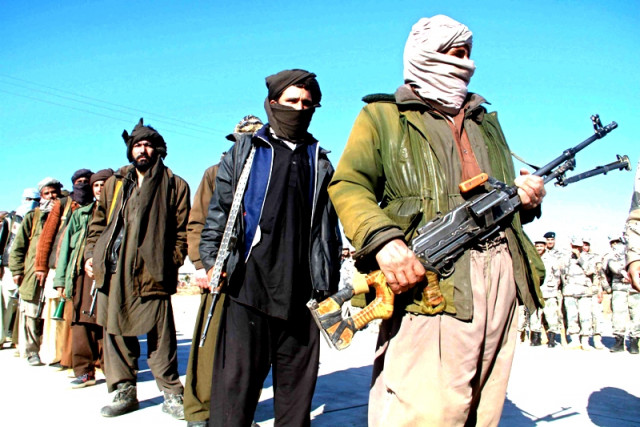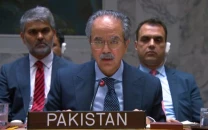Insurgent Taliban rake in $400m from different sources: UN report
Cut from allied contracts awarded to local developers accounts for 10-20% of Taliban revenues.

The report to the UN Security Council by the sanctions monitoring team said that about $275 million of that income reached Taliban leadership and the rest was collected, spent or misappropriated at the local level.
"The team understands Taliban funding as follows: revenue raised from taxing the local economy serves primarily to support local operations and is only in a few cases channeled upwards," the report said.
"Revenue extorted from nation-wide enterprises such as narcotics producers and traffickers, construction and trucking companies, mobile telephone operators, mining companies and aid and development projects goes to the Taliban Financial Commission which answers to the Taliban leadership," it said.
Donations were another major source of funding, which also went directly to the Taliban leadership.
The estimate covers the financial year ended March 20, 2012.
The UN team warned against a general perception that the Taliban's main source of income was Afghanistan's opium poppy economy. Afghanistan has long been the world's leading supplier of opium, accounting for about 90 per cent of global output.
It said that Afghan officials estimate that the Taliban earned about $100 million between 2011 and 2012 from the opium poppy industry, a small share considering the annual value of the drug crop is estimated at $3.6 billion to $4 billion.
"This suggests that the Taliban do not make great efforts to exploit this potential source of revenue," the report said.
"While it provides enough to finance much of the insurgency in the main poppy growing provinces of Helmand, Kandahar and Uruzgan, the money raised from the drug trade is insufficient to meet the cost of insurgent activity elsewhere," it said.
Attack financing
Local taxes imposed by the Taliban include a 10 per cent tax on harvest and a 2.5 per cent tax on wealth, the report said. The group will also tax services such as water or electricity, even though they have no control over the supply, and in some areas they will charge small businesses a 10 per cent tax.
Another lucrative source of income has been the foreign funding of aid and development projects.
"Estimates of Taliban income from contracts funded by the United States and other overseas donors range from 10 to 20 per cent of the total, usually by the Taliban agreeing protection money with the contractor or demanding a cut," the report said.
The NATO-led International Security Assistance Force estimated that between $100 million and $155 million of the Taliban's income was spent mounting attacks in 2011, while the rest maintained the insurgency, according to the UN report.
"Since 2006 the Taliban have managed to finance an ever-increasing number of attacks, reflecting a year-on-year increase in income," the UN report said.
US-backed Afghan forces toppled the Taliban government in late 2001 when it refused to hand over al Qaeda militants, including Osama bin Laden, after the Islamist network's hijacked airliner attacks on the United States on September 11 that year.
The Taliban said in a statement to mark the 11th anniversary of the September 11 attacks that the war on Afghanistan was illegal and called on the United States and its allies "to halt shedding the blood of the oppressed Afghans ... and to follow the path of sound reasoning instead of tyranny and stupidity."
"Every action that you take in this path only displays your brutality, oppression, savagery and arrogance because the Afghans have had no hand in the 9/11 incident and neither have you been able to provide any legitimate or logical proof," Taliban spokesman Zabihullah Mujahid said in Sunday's statement.
Foreign troops have started gradually handing over security control to Afghan soldiers and police, a process that is due to be completed by the end of 2014.



















COMMENTS
Comments are moderated and generally will be posted if they are on-topic and not abusive.
For more information, please see our Comments FAQ